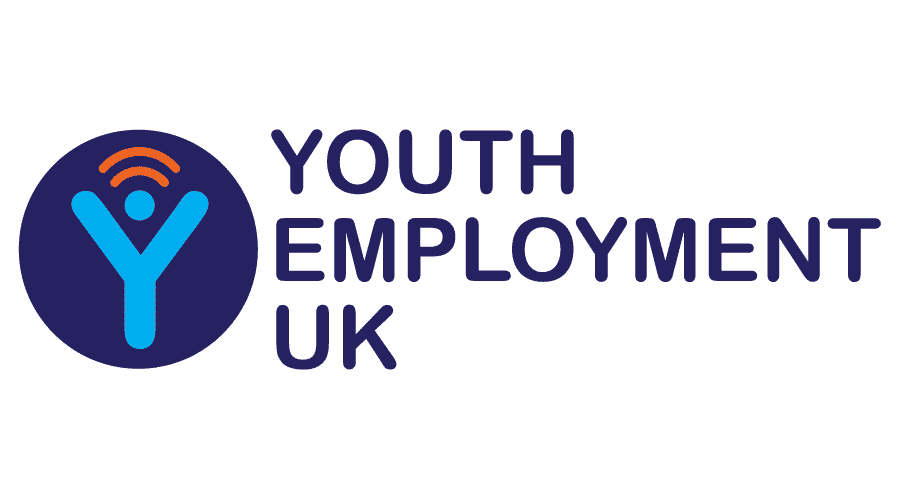Frequently Asked Questions
If you're an employer looking to hire an apprentice, you may have questions about the process and what it entails. To help answer some of your questions, we've compiled a list of frequently asked questions that we hear from employers like you. Browse through the questions to learn more about the benefits of apprenticeships, the process for hiring an apprentice, and what you can expect as an employer.
Employers Questions:
Apprenticeships are a great way of developing your skills and achieving a recognised qualification, workplace experience and earning a salary. The apprentice gains this through a broad mix of learning in the workplace, formal off-the-job training and the opportunity to practise new skills in a real work environment. Apprenticeship training will also benefit employers and individuals, by developing skills within the workforce.
The Government’s A Guide To Apprenticeships (publishing.service.gov.uk) includes how Apprenticeships work, what they are, the benefits to you, how to find the right opportunity.
Apprentices must spend at least 6 hours per week off-the-job training; however, they may need more than this if, for example, they need training in English and maths. It is up to the employer and training provider to decide how the off-the-job training is delivered. It may include regular day release, block release and special training days or workshops. It must be directly relevant to the Apprenticeship framework or standard. It can be delivered at the apprentice’s usual place of work as long as it is not part of their regular duties. It can cover practical training such as shadowing, mentoring, industry visits and attending competitions. On-the-job training helps an apprentice develop specific skills for the workplace, and a mentor should support them. Once an apprentice completes their Apprenticeship, they should be able to demonstrate that they can perform tasks confidently and entirely to the standard set by the industry.
Off-the-job training is learning that is undertaken outside the typical day-to-day working environment and leads towards the achievement of an Apprenticeship. This can include training delivered at the apprentice’s usual place of work but must not be provided as part of their regular duties.
Apprenticeship standards show what an apprentice will be doing and the skills required of them, by job role. Since they were introduced they have replaced all other apprenticeship models in England, and are well respected by employers and industry. They are the new “work based learning” qualification benchmarks and, from 2024, will be recognised by UCAS.
An End Point Assessment (EPA) is the final step in the Apprenticeship journey for employers and Apprentices. The assessment allows Apprentices to demonstrate that they’ve developed all the competencies (skills), knowledge and behaviours outlined in the Standard to prove they can do the job they’ve been training for throughout their programme.
Apprenticeships are not ‘just for young people’ – anyone can study for an Apprenticeship, if they meet the key eligibility criteria. If it is deemed that the apprenticeship training will bring “significant new knowledge, skills and behaviours” to the enrolling individual then in most cases anyone aged 16 or above, working in England, can be accepted.
Yes, Apprenticeship Standard qualifications are not just for recruiting new individuals into your business. Many companies use Apprenticeship programmes to upskill their existing employees, to provide invaluable continuing professional development for their team members.
There is no upper age limit. Apprentices must be 16 years old when they begin their Apprenticeship and are eligible to live and work in England.
All Apprentices must be paid at least the Apprenticeship National Minimum Wage relevant to their age. Apprentices should be looked upon as you would any other staff member, further details are here: Employing an apprentice: Pay and conditions for apprentices – GOV.UK Existing employees that become apprentices would maintain the same terms and conditions of employment, with the addition of the Apprenticeship Agreement.
An employee’s status as an apprentice affects the minimum wage you can pay, but there’s no upper limit. Many of our Apprentices receive pay rises and promotions prior to completing their course due to strong performance.
You will need to pay the wages of the apprentice and any other contributing factors required by their employment – from an employment point of view you should treat the individual the same as any other non-apprentice staff member.
Our training services are paid for using funds collected via the government’s Apprenticeship Levy.
If you are a large employer, who pays the Levy, then you will already have ‘ringfenced’ funding within your Digital Apprenticeship Service (DAS) account to use, to cover our services.
If you’re not paying the Apprenticeship Levy, you usually just pay 5% of the total cost of Apprenticeship training plus VAT – the government covers the other 95% for you. For apprentices aged 16-21 upon enrolment, there is no contribution required. Further details are here: Funding & Grants for Employers
The Apprenticeship Levy applies to all employers across all sectors in the UK. If you are a large employer with a payroll of over 3 million per annum you will be paying the Apprenticeship Levy. The rate is set at 0.5 per cent of an employer’s pay bill, collected monthly via Pay As You Earn (PAYE). Funding is then allocated to you, by government, ringfenced for use with approved training providers to cover the costs of their teaching and learning services. Further details are here: Funding & Grants for Employers
Hiring an apprentice is a productive and effective way for any business to grow talent and develop a motivated, skilled and qualified workforce.
Employers with an established Apprenticeship programme reported that productivity in their workplace had improved by 76%, while 75% said that Apprenticeships improved the quality of their product or service.
Other benefits that Apprenticeships contribute to include:
- increasing employee satisfaction
- reducing staff turnover
- reducing recruitment costs
A genuine job must be available with a contract of employment long enough for an apprentice to complete their Apprenticeship, including the End Point Assessment (EPA) period. Employers must pay an apprentice’s wages, and the role must help them gain new knowledge, skills and behaviours that they need to achieve the Apprenticeship, with support from the employer.
Employers need to have the following in place – and we will facilitate all of this for you:
- An Apprenticeship agreement in place with their apprentice for the duration of the apprenticeship
- A training plan signed by the apprentice, their employer and the provider detailing the content of the training, how the off-the-job hours entitlement will be met and listing commitment statements from all parties.
- a genuine job for at least one year of practical learning, plus the End Point Assessment (EPA) period – some apprenticeship Standards require longer than one year of practical learning.
Yes, you can hire as many Apprentices as you want – there’s no limit.
Smart Training and Recruitment can meet with you to discuss your business needs and create a bespoke/tailored training package. Our dedicated consultants will also maintain regular contact with you to support the delivery of training and ensure that your workforce is being developed effectively.
Employers who pay the Apprenticeship levy and have unused apprenticeship funds can transfer their funding to other employers who are in need of this. If the receiving employer does not pay the apprenticeship levy they will not need to contribute any funding to the cost of the training (the usual 5% contribution requirement is wiped). Levy-paying employers cannot transfer more than 50% of their funding allowance. Find out more here: Funding & Grants for Employers
Unlike many other training providers, our courses are delivered at your workplace without requiring learners to leave their place of work to attend training sessions and workshops. We bring all of the training to you! You will still need to ensure the apprentice has enough time put aside in order to work on their set coursework and attend our sessions, which will be scheduled to mutually satisfy all parties.
Once an apprentice completes their course, you can decide whether you wish to continue employing them as a full-time member of staff. If you choose to do so, you will be required to increase their salary to that of a full-time member of staff in-line with standard NMW requirements. Further details are here: Employing an apprentice: Pay and conditions for apprentices – GOV.UK. If you would like to continue training your apprentice, you can enrol them on a further training course at a higher level.
Over 90% of our apprentices remain with their employer once their training has finished! Apprenticeships are a recognised and successful first “stepping stone” into a career for many individuals.
If you would like to continue training your employee, in order to further boost their continuing professional development, you can enrol them on a further training course at a higher level














